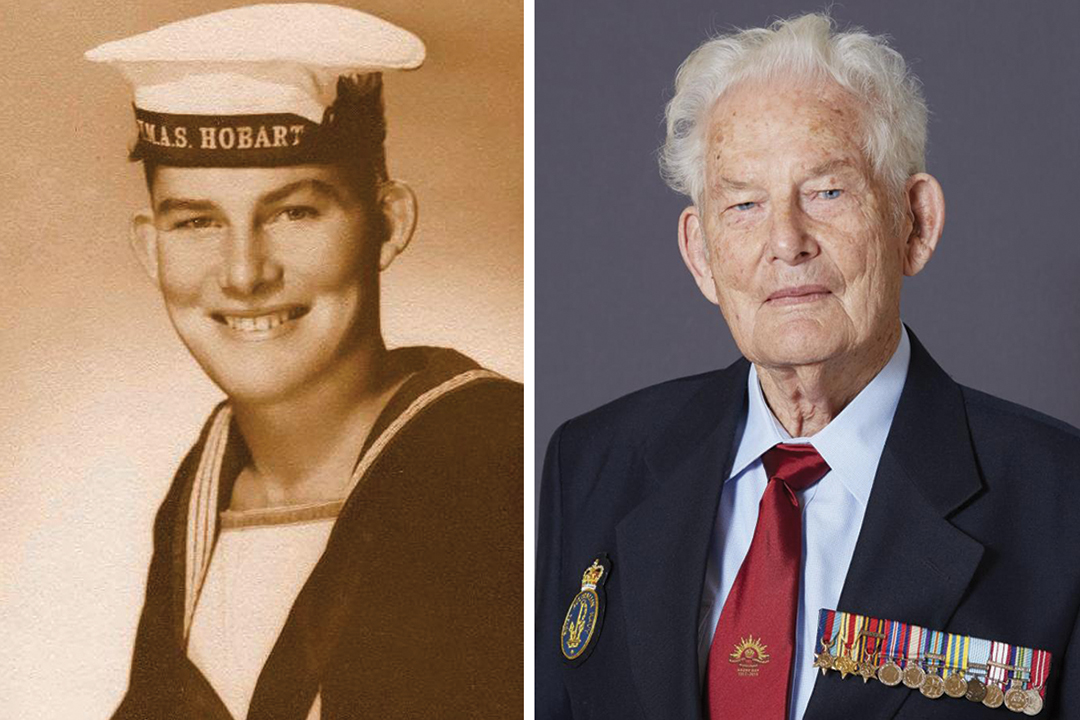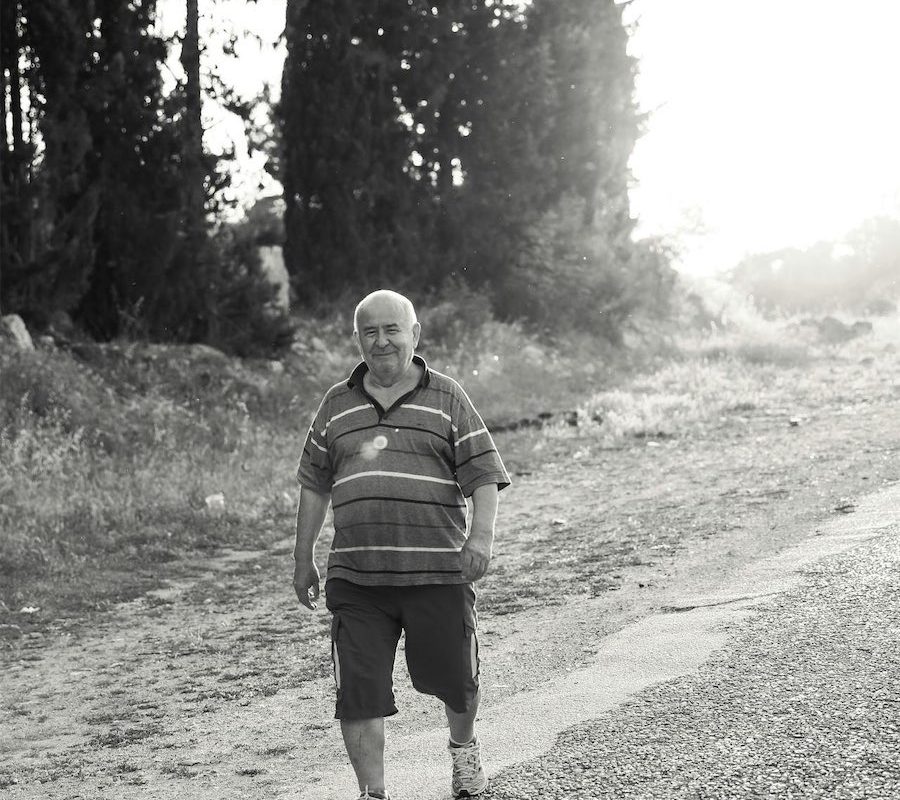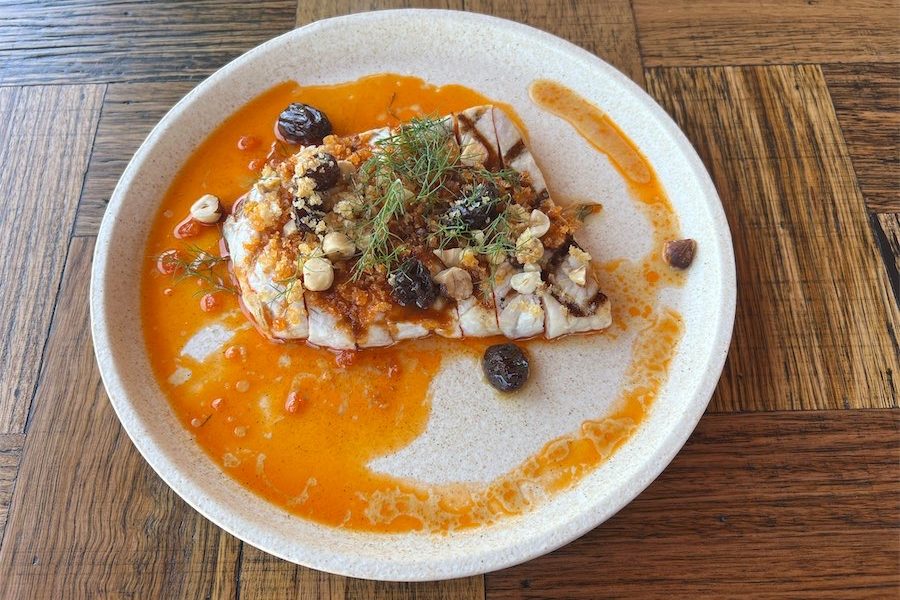
In a change of pace, columnist JON STANHOPE salutes the teenager who went off to war at the age of 16.
I COME from a large family, one consequence of which is that I have a very large extended family.

Each of us is, of course, unique and we all have life experiences that are similarly unique, and which should be appropriately celebrated. There are nevertheless people whose lives, for one reason or another, have elements that are extraordinary and invite special recognition.
One such person in my family is my brother Rick’s wife Terrie’s stepfather, Derek Holyoake.
Derek was three months old when he arrived in Australia from England, in 1924, with his parents Ralph and Bertha, and a two-year-old brother John. The family settled in Kerang. Three more children, brothers Denis and Frank and a sister Pamela were born, in quick succession.
Tragically Derek’s mother Bertha died in 1934, aged 36, when Derek was 10. Derek has retained a heart-breaking letter she wrote from the Women’s Hospital, Carlton, in the week before her death.
She said, in part: “I am getting along alright but feel very weak, can’t bother to read, but will be okay soon. My wound is still painful, and it is not healing as it should. The stitches are septic, which of course does not make things too pleasant. However, it is not much good grumbling is it.”
Following Bertha’s death, Derek’s father Ralph, perhaps overwhelmed at the prospect of caring for five young children or simply consistent with contemporary mores, left the children in orphanages in Melbourne and returned to Kerang.
Derek remained in the orphanage until his 14th birthday, in mid-1938, when to the surprise and apparent consternation of his father, the orphanage advised that, having reached working age, Derek could no longer live there and insisted his father collect him.
Two years later, following the outbreak of war, Ralph, a veteran of World War I and determined to again serve in the armed forces, enlisted in the Australian Army.
Intent on serving overseas, Ralph was concerned his responsibility to care for his dependent 16-year-old son would cruel his chances. With what might be charitably described as commendable lateral thinking, Ralph resolved his dilemma by dragging Derek down to a recruiting station, fudging his age and enlisting him in the Australian Navy.
Derek says he still recalls, with clarity, the words his father spoke to him following his enlistment: “Derek, the Navy will look after you. You’ll be safe with them”.
Derek was, following initial training, assigned in January, 1941, to the cruiser “HMAS Hobart”. Within weeks of turning 17 he found himself, in July 1941, on active service in the Mediterranean Sea, at that time possibly the hottest and most dangerous theatre of the war.
Derek first experienced live action at Suez when a crowded troop ship, “RMS Georgic”, was set ablaze by a direct hit from a German dive bomber. “Hobart” was instrumental in saving passengers and crew of the “Georgic” and in controlling the fire to save the ship. In one of life’s myriad coincidences, in 1949 my parents and four of my siblings migrated to Australia from England aboard “Georgic”.
In its Mediterranean tour of duty, “Hobart” was repeatedly attacked by German bombers and was heavily engaged in supporting forces in the Western Desert, notably at Tobruk, the reinforcement of Cyprus and in operations against Syria.
Derek recalls that after the sinking, near Tobruk, of “HMAS Parramatta” by a German U-boat on November 27, 1941, some of the few “Parramatta” crew that survived the sinking were assigned to “Hobart”. Sadly, 138 of the 162 members of the “Parramatta” crew were killed – one of whom was my wife Robyn’s uncle, Max Poyser.
As Japan entered the war, the “Hobart” transferred in early 1942 firstly to Asia, notably to Singapore and later the Pacific, and was involved in the Battle of the Coral Sea, and other major engagements in the South Pacific in which she was repeatedly attacked by Japanese aircraft and threatened by submarines.
On July 23, 1943, “Hobart” was struck by a torpedo fired by a Japanese submarine and suffered severe damage and casualties. After the torpedo strike Derek says, the first thought to come into his mind was his father’s promise when he signed him up that: “You’ll be safe now”.
Ironically, Ralph was deemed by the Army to be too old for active service and never left Australia.
Sadly, Derek’s older brother John, whom Derek regrets he never got to know because they grew up in separate orphanages, was killed, aged 20, in New Guinea, in action against the Japanese.
At the end of the war Derek remained in the Navy for another eight years in which he saw active service on the aircraft carrier “HMAS Sydney” during the Korean War.
Derek is now 97 years old and one of the dwindling number of heroes of the defence of Australia in the time of its greatest peril.
I am proud to know Derek. While he would never agree with me, I feel that he has given more to Australia than it to him. Derek was 29 when he left the Navy having served for 13 years through two major wars.
I recently asked him how he remembered his time in the Navy, and he said, without hesitation: “They were the best years of my life”.
Who can be trusted?
In a world of spin and confusion, there’s never been a more important time to support independent journalism in Canberra.
If you trust our work online and want to enforce the power of independent voices, I invite you to make a small contribution.
Every dollar of support is invested back into our journalism to help keep citynews.com.au strong and free.
Thank you,
Ian Meikle, editor




Leave a Reply